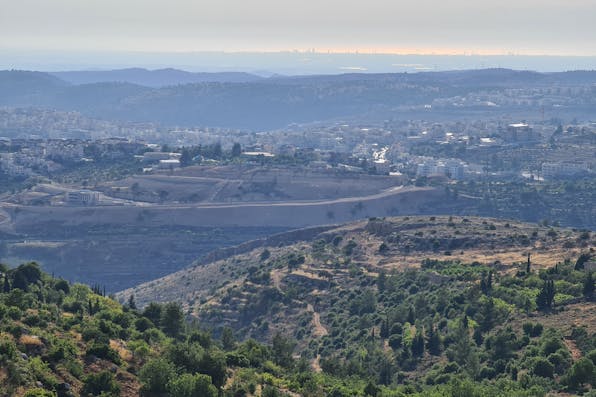
February 24, 2025
Why Israel Should Keep Open the Possibility of Palestinian Statehood
The status quo is worth sustaining, but the Oslo Accords are part of it.
“Clever” is an appropriate term for the counterintuitive essay titled “To Save Itself from International Isolation, Israel Must Hold On to the West Bank.” An argument that rejects solutions to the Israel-Palestinian conflict advocated by both the left and right—withdrawal and annexation, respectively—is a clever way to claim the middle ground, where most sensible people like to be. And at a time when even the president of the United States has his own creative (and, perhaps, fanciful) ideas for the future disposition of people living in some of the disputed territories, there is no better word than clever for suggesting that the best approach is to stand pat and do nothing. But dig more deeply and one will find that this paean to the status quo is too clever by half, with the “status quo” it embraces so disfigured and hollowed out that it is, in fact, a very different thing from the dictionary definition of “the existing state of affairs.”
The core of DeMogge’s provocative argument is that, in his words, “withdrawing from captured territory is significantly more likely to lead to war than capturing territory.” The Camp David offer to withdraw from all the West Bank in 2000 led to the second intifada, he notes; the Gaza withdrawal in 2005 led eventually to October 7. Add it up and giving—or even offering to give—territory to Palestinians is a recipe for disaster. Therefore, he argues, the best solution for Israel’s political predicament with the Palestinians is to take territorial concession off the table while maintaining the allegedly “unsustainable” status quo.
DeMogge is certainly right about one big thing: what pundits and politicians frequently label “unsustainable” is anything but. After all, Israel’s control of the West Bank (Gaza is, as he notes, in a highly fluid situation and lies outside his argument) has been “unsustainable” for nearly 60 years, yet it goes merrily on. Indeed, Israelis and Palestinians will soon mark—I think “celebrate” is even in order, but I may be in a minority on that—30 years since the Oslo II accord divided the West Bank into its current patchwork of Areas A, B, and C. It is worth nothing that this awkward, unwieldy arrangement, about which the vast majority of the world’s pundit and political class appears to know nothing, has lasted longer than both the British mandate for Palestine and Jordan’s control of the West Bank. It is, in fact, the longest-lived governmental system for this area since the Ottoman era.
Responses to February ’s Essay

February 2025
Israeli Territorial Concessions Worsen Anti-Semitism in the West
By Evelyn Gordon
February 2025
Why Israel Should Keep Open the Possibility of Palestinian Statehood
By Robert Satloff
February 2025
Why Some Western Liberals Love Palestinian Terror
By Calev Ben-Dor
February 2025
Status Quoism Is a Temperament, Not an Ideology
By Rafi DeMogge
February 2025
E-Book: To Save Itself from International Isolation, Israel Must Hold On to the West Bank
By Rafi DeMogge, Robert Satloff, Evelyn Gordon, Calev Ben-Dor